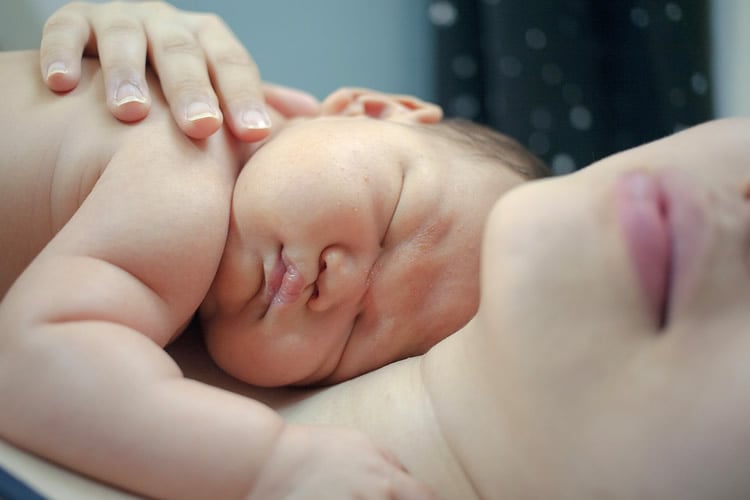Summary: A newly developed drug can help combat the effects of postnatal depression.
Source: Texas A&M
Earlier this month, the United States Food and Drug Administration (FDA) approved the first drug to treat postpartum depression, brexanolone, which will be marketed under the brand name Zulresso.
About one out of every nine American women experience postpartum depression, according to the Centers for Disease Control and Prevention. The condition can make it impossible for them to care for and bond with their babies, and although traditional antidepressants can help, they take weeks to work—weeks that women with suicidal thoughts or fears of harming their children may not be able to afford.
Brexanolone is a rename of allopregnanolone, a hormone synthesized by the body from progesterone. It is the first “neurosteroid” to enter the clinic. D. Samba Reddy, PhD, RPh, professor of neuroscience and experimental therapeutics at the Texas A&M College of Medicine, has been working on the basic science behind the drug for the last two decades.
In 1999, when Reddy was working at the National Institutes of Health (NIH), he discovered how stress-induced release of neurosteroids protect the brain. Later, he and a colleague, Michael A. Rogawski, MD, PhD, invented a neurosteroid replacement therapy.
More recently, Reddy and his team mapped the “neuro-code” for treating women with menstrual period-linked epilepsy—a condition with similar qualities as postpartum depression.
“The new drug is based on our core neurosteroid replacement therapeutic strategy, as highlighted in more than 50 papers in the past 20 years, including identifying a unique mechanism during the perimenstrual and postpartum period,” Reddy said.
One issue that people have raised with brexanolone is that it requires remaining in the hospital for nearly three days while receiving the drug via IV. Reddy hopes some of his discoveries may prove better delivery options in the future. He hopes to move forward into clinical trials with nearly 20 second-generation neurosteroids that he and his team have synthesized, tested in preclinical models and patented.

“These new analogs are superior to brexanolone because they could be formulated into a pill that could be taken orally and wouldn’t require a hospital stay,” Reddy said. “We think that they have the potential to help even more women with postpartum depression and other hormone-related conditions.”
Funding: Reddy’s research was funded by the National Institute of Neurological Disorders and Stroke, part of the National Institutes of Health.
Source:
Texas A&M
Media Contacts:
Christina Sumners – Texas A&M
Image Source:
The image is in the public domain.
Thanks to Dr. Samba Reddy for submitting this research news for our readers to enjoy.






